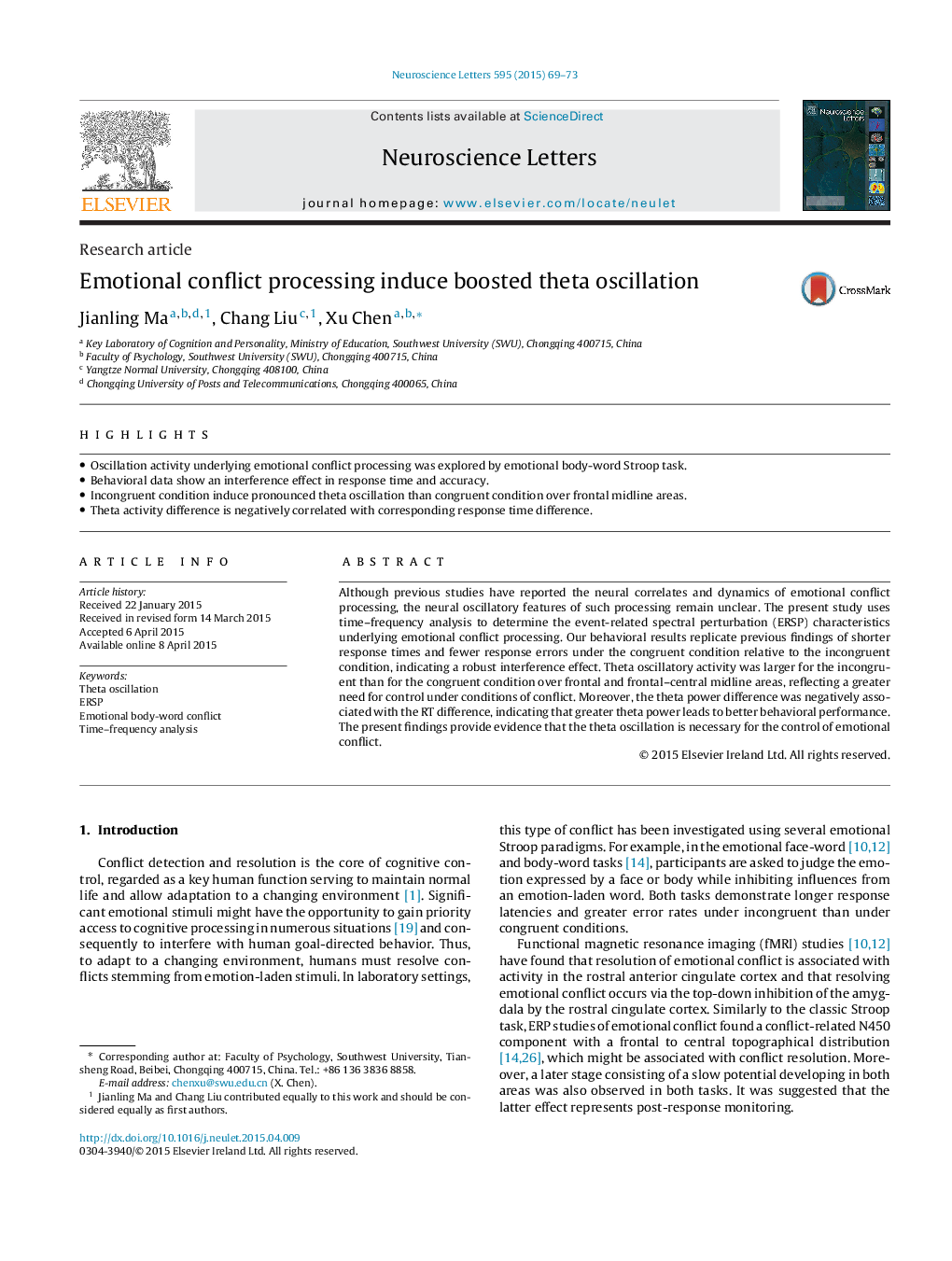| Article ID | Journal | Published Year | Pages | File Type |
|---|---|---|---|---|
| 6280956 | Neuroscience Letters | 2015 | 5 Pages |
Abstract
Although previous studies have reported the neural correlates and dynamics of emotional conflict processing, the neural oscillatory features of such processing remain unclear. The present study uses time-frequency analysis to determine the event-related spectral perturbation (ERSP) characteristics underlying emotional conflict processing. Our behavioral results replicate previous findings of shorter response times and fewer response errors under the congruent condition relative to the incongruent condition, indicating a robust interference effect. Theta oscillatory activity was larger for the incongruent than for the congruent condition over frontal and frontal-central midline areas, reflecting a greater need for control under conditions of conflict. Moreover, the theta power difference was negatively associated with the RT difference, indicating that greater theta power leads to better behavioral performance. The present findings provide evidence that the theta oscillation is necessary for the control of emotional conflict.
Related Topics
Life Sciences
Neuroscience
Neuroscience (General)
Authors
Jianling Ma, Chang Liu, Xu Chen,
